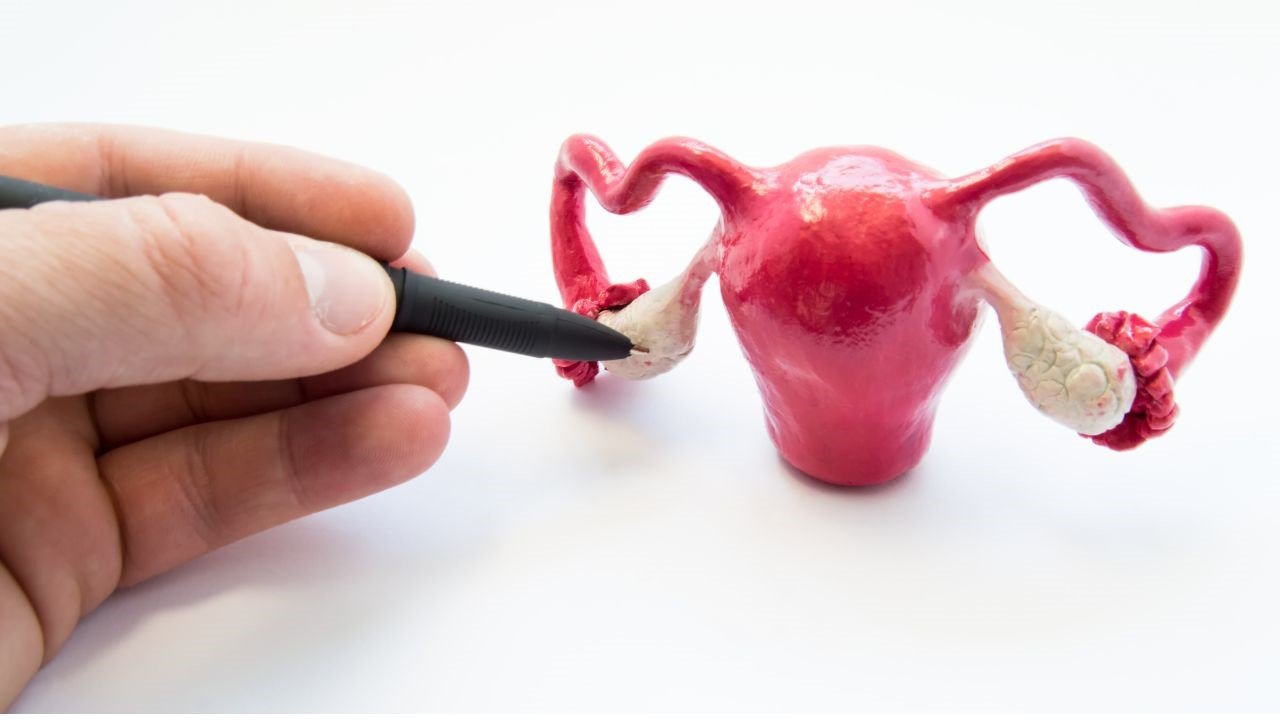PCOS can make weight loss a challenging journey, but with the right approach and determination....
Read morePublished - Oct 16, 2023 | Last Updated: 03 Oct, 2023
Published by: Dr. Shabnam Sharjil

Are you one of the millions of women who have heard about PCOS or PCOD but are still unsure about what exactly it is? Have you been bombarded with contradictory information and left feeling confused and frustrated? Well, you're not alone. PCOS/PCOD, also known as Polycystic Ovary Syndrome/Disorder, is a common hormonal disorder that affects many women worldwide. In this blog post, we aim to provide you with a comprehensive understanding of PCOS/PCOD and debunk some of the common myths surrounding it. So, let's go deep and uncover the truth!

PCOS/PCOD is a hormonal disorder that affects the ovaries and can cause a wide range of symptoms. It is estimated that 1 in 10 women of childbearing age have PCOS/PCOD, making it one of the most common endocrine disorders in women. Despite its prevalence, PCOS/PCOD is often misunderstood and misdiagnosed.
The symptoms of PCOS/PCOD can vary from woman to woman, but some common indicators include irregular periods, excess hair growth, acne, weight gain, and difficulty getting pregnant. To diagnose PCOS/PCOD, doctors usually consider a combination of symptoms, medical history, physical exams, and laboratory tests. However, it's important to note that PCOS/PCOD is a complex condition, and not all women experience the same symptoms or severity.

One of the most widespread misconceptions about PCOS/PCOD is that it is solely characterized by the presence of cysts on the ovaries. While the name itself suggests the presence of cysts, the reality is that not all women with PCOS/PCOD have ovarian cysts, and not all ovarian cysts are related to PCOS/PCOD. Cysts are just one aspect of the condition, and other hormonal imbalances play a significant role in its development and manifestation.
While PCOS/PCOD is known to be a leading cause of female infertility, its impact extends far beyond reproductive health. The hormonal imbalances associated with PCOS/PCOD can lead to various health issues, such as insulin resistance, obesity, diabetes, cardiovascular diseases, sleep apnea, and mental health disorders like depression and anxiety. It's crucial to recognize and address these potential risks to ensure overall well-being.
The exact cause of PCOS/PCOD remains unknown, but several factors are believed to contribute to its development. These factors include insulin resistance, genetics, hormonal imbalances, and lifestyle factors such as diet and physical activity. While you can't control your genetic predisposition, certain lifestyle modifications can help manage PCOS/PCOD and minimize its impact on your health.
Blaming lifestyle choices as the sole cause of PCOS/PCOD is unfair and misleading. While lifestyle factors can increase the risk and severity of PCOS/PCOD symptoms, it is important to remember that genetics and hormonal imbalances also play a significant role. Many women with PCOS/PCOD lead healthy lifestyles, yet still struggle with the condition. Therefore, it's essential to approach PCOS/PCOD management holistically and not stigmatize individuals based on assumptions and misconceptions.
A balanced and nutritious diet plays a crucial role in managing PCOS/PCOD. While there isn't a specific "PCOS/PCOD diet," certain dietary modifications can help regulate hormones, improve insulin sensitivity, and manage weight. Opting for whole foods, fiber-rich carbohydrates, lean proteins, and healthy fats, while minimizing processed foods, refined sugars, and trans fats, can have a positive impact on PCOS/PCOD symptoms.
Regular physical activity not only aids in weight management but also improves insulin sensitivity and mood. Daily aim for at least 10000 steps of brisk walking and exercise of 30 minutes daily. Find activities you enjoy, whether it's dancing, swimming, or cycling, and strive for consistency rather than intensity.
While lifestyle modifications are crucial for managing PCOS/PCOD, medical interventions may also be necessary depending on the severity of symptoms and individual needs. Hormonal contraceptives, insulin-sensitizing medications, and fertility treatments are some common medical interventions prescribed by healthcare professionals. It's important to have open and honest discussions with your doctor to determine the most appropriate treatment plan for your unique situation.
PCOS/PCOD is a complex condition that affects women physically, emotionally, and mentally. It's essential to challenge the myths surrounding PCOS/PCOD and promote a better understanding of the condition. By dispelling misconceptions, supporting research, and fostering open conversations, we create an environment that empowers women with PCOS/PCOD to seek accurate information, access appropriate care, and lead fulfilling lives.
Polycystic Ovary Syndrome (PCOS) and Polycystic Ovary Disorder (PCOD) are often used interchangeably, but they are not entirely the same. PCOS is a metabolic condition, whereas PCOD is more of a hormonal disorder. PCOS has a broader impact on a woman's overall health, affecting metabolic and cardiovascular health, in addition to reproductive health. On the other hand, PCOD primarily affects only the menstrual cycle and fertility. Understanding the nuances between these two conditions is crucial for accurate diagnosis and effective treatment.
Diagnosing PCOS/PCOD involves a multi-step process that usually starts with a detailed medical history and physical examination. Blood tests may be conducted to check hormone levels, and an ultrasound may be used to examine the ovaries. The diagnosis often considers the Rotterdam criteria, which require at least two of the following three criteria to be met: irregular periods, excess androgen levels, and polycystic ovaries. It's essential to consult a healthcare provider for an accurate diagnosis, as the symptoms can vary widely among women.
While lifestyle changes can significantly help manage the symptoms of PCOS/PCOD, they are not a cure. A balanced diet and regular exercise can improve insulin resistance and hormone levels, thereby alleviating some symptoms. However, PCOS/PCOD is a chronic condition that often requires a multi-faceted approach for management, including medication and lifestyle changes.
The long-term risks of PCOS/PCOD extend beyond reproductive health. Women with these conditions are at a higher risk for insulin resistance, type 2 diabetes, high cholesterol, high blood pressure, and heart disease. Additionally, there's an increased risk for mental health issues such as depression and anxiety. Early diagnosis and effective management can help mitigate these risks, making it crucial for women to consult healthcare providers for a comprehensive treatment plan.
Yes, several natural remedies can help manage the symptoms of PCOS/PCOD. These include:
PCOS can make weight loss a challenging journey, but with the right approach and determination....
Read moreLooking for an effective PCOS Diet Chart? Discover a tailored PCOS diet plan to support your well-being.
Read moreThe Digital Revolution in PCOS, PCOD, and Infertility Online Consultation (Telemedicine)....
Read moreDiscover the Best PCOS Treatment in Delhi: Top-rated PCOS clinics in Delhi like PCOS Ferticure....
Read moreLooking for a guide on managing PCOS irregular periods? Explore effective strategies to regulate your menstrual cycle with our PCOS irregular periods guide.
Read moreDr. Shabnam Sharjil offers best PCOS treatment in Delhi, along with Online Polycystic Ovary Syndrome (PCOS PCOD) Video consultation....
Read moreThere are several treatment options available for PCOS, depending on the individual's specific....
Read moreThe symptoms of PCOS/PCOD can vary from woman to woman, but some common indicators include irregular periods....
Read moreUnlock remarkable success in treating PCOD and PCOS with Ferticure, the leading destination for PCOD-PCOS....
Read moreDr. SHABNAM SHARJIL is the Best Polycystic Ovary Syndrome (PCOS) Treatment Doctor in India for....
Read moreUnderstand the causes of irregular periods, from hormonal imbalances to conditions like PCOS, and....
Read moreWelcome to our comprehensive Frequently Asked Questions (FAQ) section, dedicated to providing....
Read morePlease click the link below to get location of the PCOS Ferticure Clinic....
Read morePlease click the link below to get location of the PCOS Ferticure Clinic....
Read moreEmpowering Lives: Discover a supportive community and expert insights to navigate....
Read moreFlaxseed offers a potent source of Omega-3s, essential for rectifying the hormonal disparities....
Read moreUnderstanding PCOS Mood Swings: Learn about the emotional challenges faced by individuals with PCOS and....
Read moreIn the realm of Obstetrics and Gynaecology, Dr. Shabnam stands out as a beacon of hope for women struggling....
Read morePelvic Inflammatory Disease primarily targets a woman's reproductive system and often originates....
Read moreUnderstand the causes of irregular periods, from hormonal imbalances to conditions like PCOS, and....
Read moreOnline PCOD PCOS Video Consultation: Elevate your PCOS fertility journey with Dr. SHABNAM....
Read morePCOD arises from a blend of hormonal imbalances and genetic factors, manifesting in a variety of....
Read moreEndometriosis is a chronic condition where tissue resembling the uterine lining grows outside the....
Read moreExtensive research has indicated that women with PCOS may face an elevated risk of experiencing....
Read moreDr. SHABNAM SHARJIL is the Best Polycystic Ovary Syndrome (PCOS) Treatment Doctor in India for....
Read moreDr. SHABNAM SHARJIL is a leading expert in PCOS and PCOD treatment, offering comprehensive PCOS....
Read more